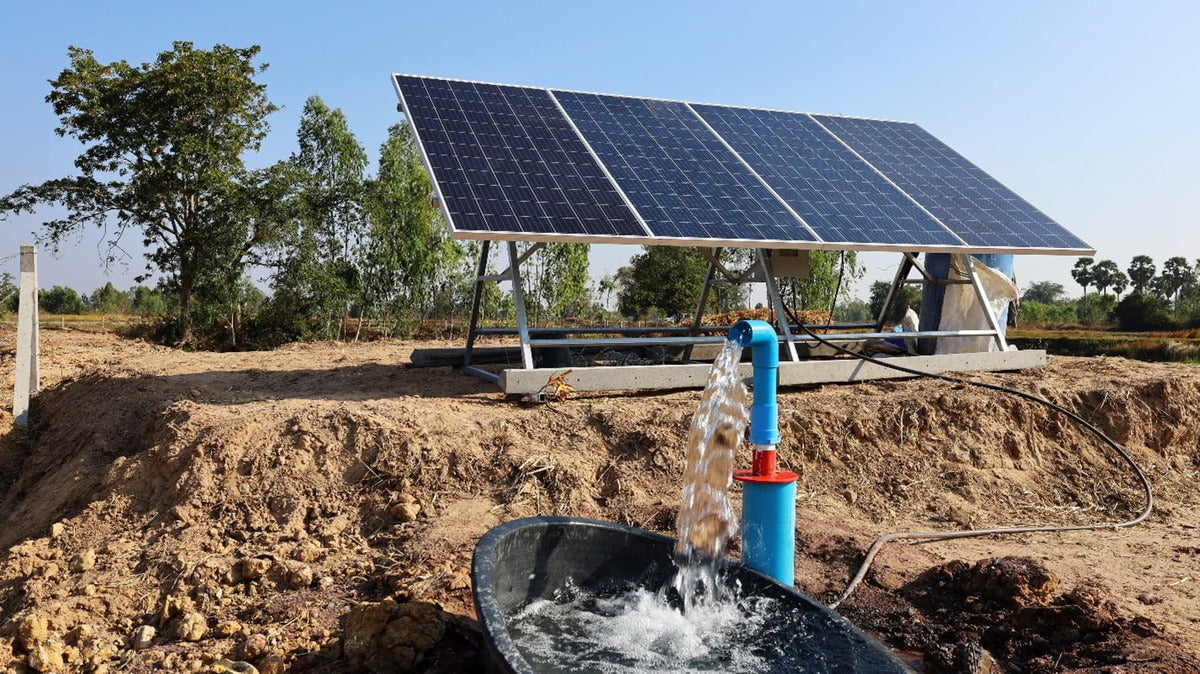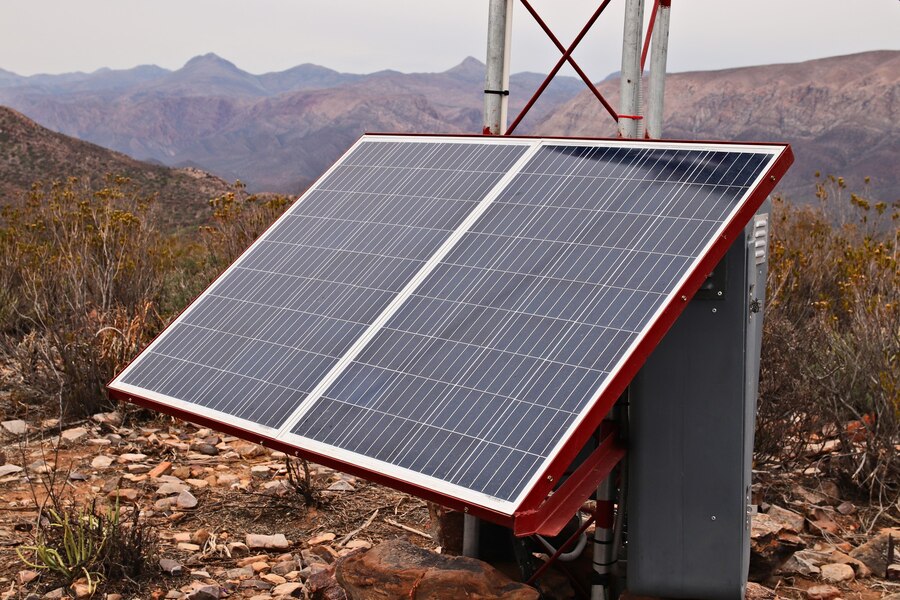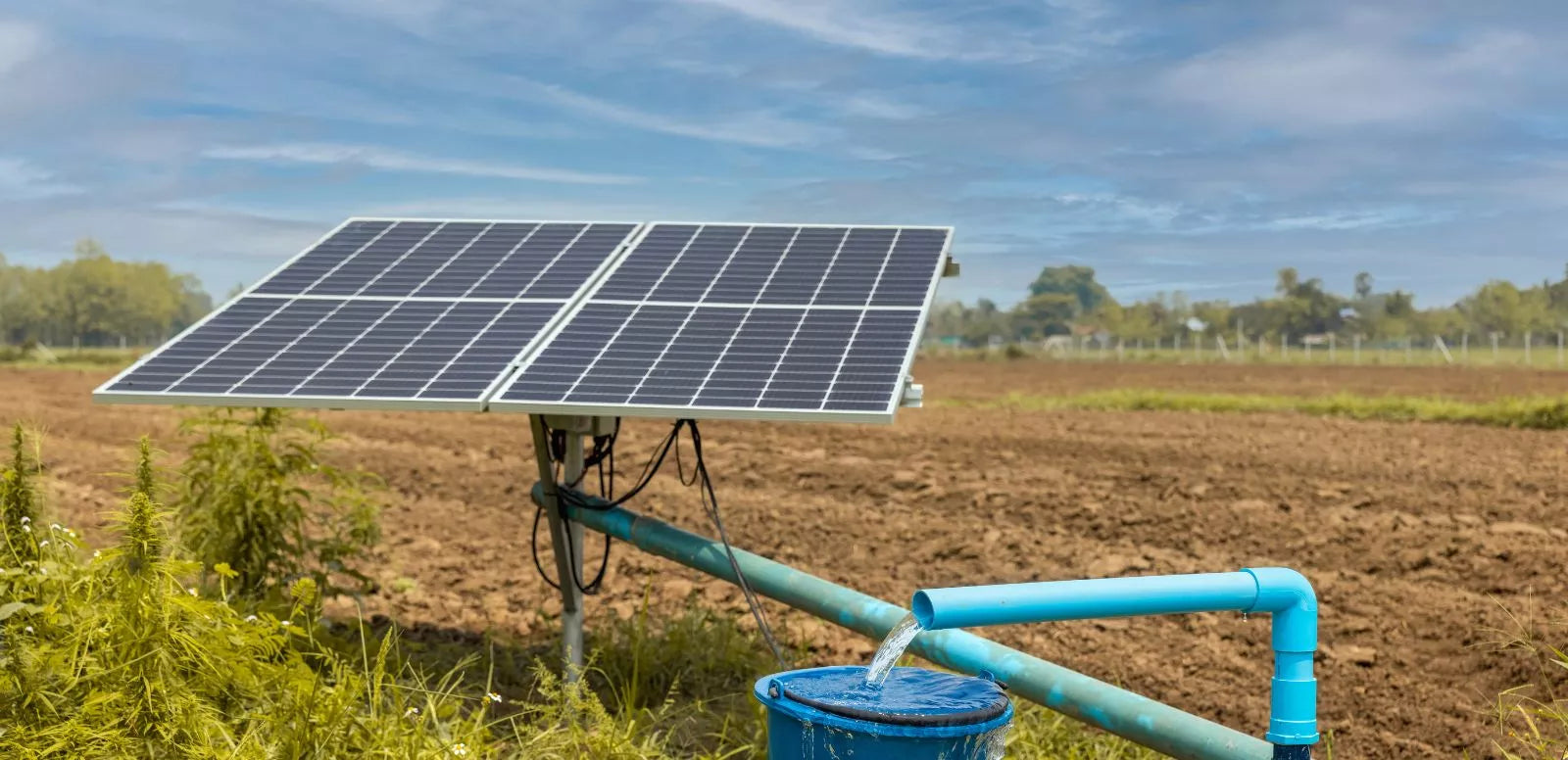As the agriculture industry grapples with climate change and resource scarcity, implementing sustainable practices has become increasingly important. Solar water pumping offers a realistic solution to improve agricultural sustainability while reducing environmental impacts.
In this article, we will look at the environmental and economic benefits of solar water pumps and explain why they are such a vital tool for today's farmers.
Why Choose Solar Water Pumping? Understanding the Basics
- Solar water pumping uses the sun's power to extract water from underground sources, rivers, or ponds, providing a consistent and sustainable source of irrigation for crops and cattle.
- Unlike standard diesel or electric pumps, solar pumps do not create damaging greenhouse gases, making them an environmentally beneficial option for sustainable agriculture.
- Solar water pumping provides farmers with the potential to lower their carbon footprint while reaching water self-sufficiency by eliminating the need for fossil fuels and reducing operating costs.
Environmental Sustainability through Solar Pumping
- Solar pumping has substantial environmental benefits, including lowering carbon emissions by decreasing dependency on fossil fuels.
- Traditional pumping systems, such as diesel-powered pumps, contribute to air pollution and greenhouse gas emissions, exacerbating climate change. Solar pumps, on the other hand, operate quietly and emit no carbon dioxide, reducing agriculture's environmental impact.
- This helps to preserve natural resources through sustainable water management techniques, as solar pumps use the sun's energy, which is renewable and abundant.
- Solar pumping reduces air and water pollution caused by typical pumping methods, encouraging healthier air and water quality.
- Solar pumping promotes biodiversity and ecosystem protection by reducing habitat disruption, resulting in a healthier environment for wildlife and plants.
- Solar pumping increases climate resilience and adaptation in agriculture by allowing farmers to meet their water needs using renewable energy sources, even in the face of climate variability.
- Solar pumping plays an important part in building a cleaner, greener farming future, assuring long-term environmental sustainability while satisfying the water needs of crops, livestock, and communities.
Enhancing Farm Efficiency: The Economic Advantages of Solar Pumps
In addition to their environmental benefits, solar water pumps provide significant economic benefits to farmers.
- Farmers can significantly cut their electricity expenses by harvesting free solar energy, resulting in long-term savings.
- Solar pumps require less maintenance than conventional pumps, resulting in cheaper operating costs and greater reliability.
- With government subsidies and funding alternatives for renewable energy projects, the initial cost of solar water pumping systems can be compensated by the potential for financial returns and increased farm profitability.
- Solar pumps require less maintenance than traditional types of pumps. They have fewer mechanical components, making them less prone to breakdowns and requiring fewer maintenance callouts.
- Solar water pump systems are portable, allowing farmers to shift their systems in response to seasonal changes or livestock movements.
- Solar pump systems are extremely efficient, especially in sunny areas, where they continue to function successfully while lowering operating costs and supporting environmentally beneficial behaviours.
Future-Proof Your Farm: The Long-Term Benefits of Investing in Solar Technology
As we look ahead, the benefits of investing in solar water pumping technologies become increasingly clear. Farmers may proactively protect their crops from rising energy prices, water scarcity, and climate-related disruptions by incorporating renewable energy solutions into their operations. Solar pumps provide a consistent and sustainable source of water, allowing farmers to adapt to changing environmental conditions and preserve the long-term viability of their livelihoods for future generations.
The use of solar water pumping technology provides farmers with an opportunity to strengthen their agricultural practices against the uncertainties of the future. Farmers that embrace renewable energy solutions can secure their harvests and sustain their livelihoods for future generations. Explore the LORENTZ solar pump range today to ensure a sustainable future on your farm.
Frequently Asked Questions
How do solar water pumps contribute to farm sustainability?
Solar water pumps reduce reliance on fossil fuels, lower carbon emissions, and promote efficient water management, enhancing farm sustainability.
What are the cost benefits of switching to solar water pumps?
Switching to solar water pumps leads to reduced electricity costs, minimal maintenance expenses, and potential financial incentives, resulting in long-term cost savings for farmers.
Can solar water pumps operate in all weather conditions?
Yes, solar water pumps can operate in various weather conditions, thanks to advanced technology and battery storage options that ensure continuous operation, even during periods of low sunlight.
What maintenance is required for solar water pumps?
Solar water pumps require minimal maintenance, typically consisting of occasional cleaning and inspection of components. With fewer moving parts than traditional pumps, they offer increased reliability and longevity.
How long does it take to install a solar water pump system on a farm?
Installation times for solar water pump systems vary depending on factors such as system size and complexity. However, with the expertise of qualified installers, installation can typically be completed within a few days to a week.







